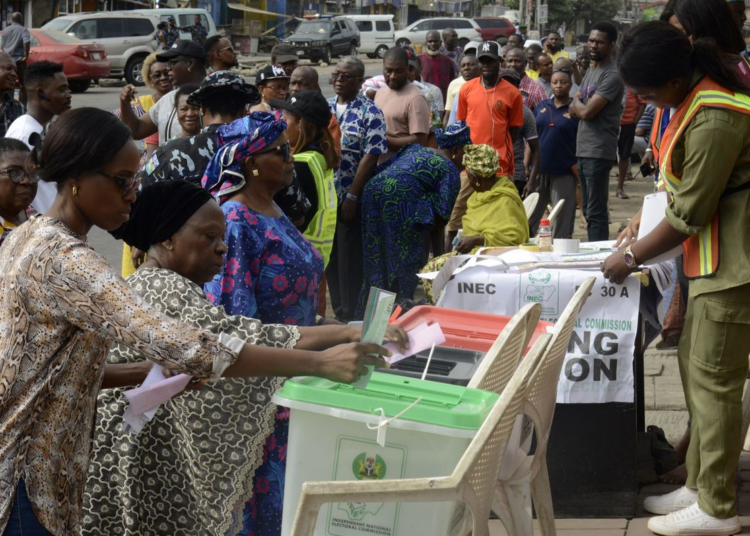Although the dust is yet to settle after the presidential and federal legislative elections, attention has shifted to the governorship and state assembly elections which will hold on March 11.
So far, the political map of the country has witnessed an unprecedented shift with the three major contenders in the last polls, securing victories in 12 states each.
The ruling All Progressives Congress (APC), candidate Asiwaju Bola Ahmed Tinubu won the presidential election with 8,794,726 votes.
Peoples Democratic Party (PDP) presidential candidate, Atiku Abubakar, got 6,984,520 to rank second while Labour Party’s Peter Obi polled 6,101,533 votes to emerge third.
Senator Rabiu Musa Kwankwaso of the New Nigeria Peoples Party (NNPP) came a distant fourth with 1,496,687 votes, even though he dominated the polls in Kano State.
Tinubu, Atiku and Obi won 12 states each while Kwankwaso won only one state.
The total valid votes during the polls during 2023 General Election is 24,025,940; the total rejected votes: 939,278 and total votes cast: 24,965,218.
On a broad scale, however, presidential elections give a geo-political mapping of the standing of political parties.
Bandwagon effect
The bandwagon effect from the presidential and National Assembly is expected to play out during the governorship and National Assembly election. This scenario follows that which ever party wins at the presidential election is likely to sweep subsequent subnational elections.
This scenario was most manifest during the 2003 governorship election when then president Olusegun Obasanjo of the PDP, having secured his a second term mandate, mobilised for his party to sweep the South West states.
The 2015 election followed the same pattern with the famous President Muhammadu Buhari-led APC tsunami which swept through states in the north where PDP held sway.
The tendency of states to swing is usually driven by a quest to allign with the ruling party at the center.
This time however, each party won 12 states at the presidential level. The task is whether they can retain or enlarge the states they won so far at the governorship polls.
Confidence in the electoral process
The complaints about irregularities, ranging from logistics to failure to upload results real time from polling units, trailed the conduct of last Saturday’s election, could either damp the enthusiasm of voters, especially those who engaged the process because of the promise of enhanced technology in ensuring transparency.
Payback in some states
In states where some Labour Party loyalists feel hard done by the antics of incumbent governors or ruling parties, there seems to be an attempt to payback those states by ensuring that the incumbent party loses. States like Lagos, Rivers, Imo and Akwa Ibom are in this bracket. In these states possible alliances among the opposition parties are likely to play out. But how well can they mobilise for this task is another matter.
Political Survival
Ruling parties and incumbent governors would seek to retain control in states based on the outcome of last Saturday’s national polls. They are wont to seek realignments and strike fresh deals to retain status quo.
We’ve got the edge. Get real-time reports, breaking scoops, and exclusive angles delivered straight to your phone. Don’t settle for stale news. Join LEADERSHIP NEWS on WhatsApp for 24/7 updates →
Join Our WhatsApp Channel










